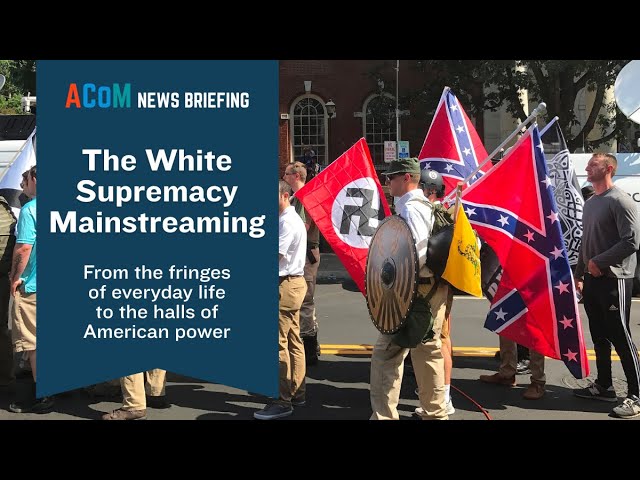Vidya Sethuraman
India Post News Service
White supremacist ideas once confined to the margins of U.S. society have increasingly entered mainstream political and cultural spaces, shaping debates, influencing policy, and fueling polarization. ACoM briefing on Nov 14 explored how white supremacist narratives and ideologies have become normalized in public discourse, their connections to Christian nationalism and political mobilization, and what this shift means for communities and journalists covering these issues.
Heath Druzin, Journalist and Host of the Extremely American podcast, covering the mainstreaming of extremist and militia movements, as well as Christian Nationalism stated that social media has accelerated the spread of extremist ideologies, making previously unthinkable statements normalized online. Furthermore, the public use of derogatory racial language by political leaders has given extremist rhetoric social legitimacy. He cautioned that conspiracy theories repeatedly appearing in mainstream politics today often originate from white supremacist organizations, and the media must identify their vocabulary and expose their true nature.
Matthew D. Taylor, Ph.D., Senior Christian Scholar, Institute for Islamic, Christian, and Jewish Studies (ICJS) pointed out that this ideology is not mainstream Christianity, but rather a political ideology that takes for granted the United States as a Christian nation and regards white Protestant culture as the orthodox ideology of the country. He said that since 2015, Trump has successfully attracted a large number of non-denominational Pentecostal churches, bringing some previously marginalized radical religious leaders into the political core and forming a theological narrative that “Trump is God’s choice.” Against this backdrop, some Christian supremacists even advocate that women should not vote and that the government should legislate entirely based on the Bible. Such exclusive ideas are more difficult to detect because they are packaged in religious language.
Sanford F. Schram, Adjunct Lecturer in Political Science, Stony Brook University (SUNY) and co-author of Hard White: The Mainstreaming of Racism in American Politics stated that white supremacist sentiment did not begin in the President Trump era, but rather accelerated after Obama’s election. He pointed out that xenophobic rhetoric existed within the Republican Party as early as the Reagan era, gradually growing stronger through the Tea Party and the Trump movement, making “white identity politics” a significant force within the Republican Party today. He emphasized that an increasing number of white people see themselves as new victims, viewing multiculturalism as a threat; this sentiment drives votes and gives extreme policies social legitimacy.
Devin Burghart, Executive Director of the Institute for Research & Education on Human Rights (IREHR) states that across the United States, the far-right movement had only about 25,000 core members in the 1970s, but today its related online communities have millions. He states that the reason why extremist groups’ ideologies can infiltrate the mainstream from the periphery is because a large number of state legislators have joined far-right organizations, allowing fringe conspiracy theories to directly become part of legislation. He warns that the far-right movement not only intensifies racial hatred but also promotes policies such as anti-vaccine, anti-LGBTQ, weakening women’s rights, and eradicating Black history education, posing a structural danger to the democratic system.
When discussing how to rebuild trust and safeguard democracy, scholars generally believe that the United States is at a critical juncture. Taylor stated that many countries around the world have experienced democratic regression due to the combination of religion or nationalism with populist movements; the only effective way is to build a coalition that represents the greatest common denominator across ethnic groups and the political spectrum.
Also Read: Facebook moves to curb white nationalism, separatism on platform







